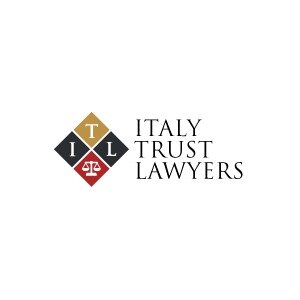Best Land Use & Zoning Lawyers in Florence
Share your needs with us, get contacted by law firms.
Free. Takes 2 min.
Free Guide to Hiring a Real Estate Lawyer
List of the best lawyers in Florence, Italy
About Land Use & Zoning Law in Florence, Italy
Land use and zoning laws in Florence, Italy, are governed by national, regional, and local rules and regulations. These determine how land and properties within a given area can be utilized. These laws are regulated through a series of "Master Plans" that designate areas for different uses such as residential, commercial, industrial, and agricultural. Updates and changes to these rules are managed through a robust legal and administrative process. Any proposals of changing land use or violating zoning laws can result in serious repercussions including legal action.
Why You May Need a Lawyer
There are several situations in which you might need a lawyer skilled in Italian land use and zoning law. For example, if you plan to buy property and want to modify its use, if you're facing resistance due to changes you've made to a property, or if you're engaged in a boundary dispute with a neighbor. A lawyer can also assist in interpreting and ensuring compliance with complex zoning and planning regulations, advise you on the prospects of obtaining permits, and represent you, if necessary, in administrative hearings and court proceedings.
Local Laws Overview
Florence is well-known for its cultural heritage, making its land use and zoning laws particularly detailed. Italian law provides a strong protection to historically and culturally important properties, which are governed by strict regulations from various heritage and preservation organizations. Converting a residential building into a commercial space, for instance, can be challenging due to strict zoning regulations. As Florence is part of the Tuscany region, regional laws such as Regional Law 1/2005 also govern urban planning and land use.
Frequently Asked Questions
1. Can I change the use of my property in Florence?
Yes, but it requires approval from local zoning authorities, and possibly regional and national bodies if the property is of historical significance.
2. How can I find out the current zoning classification of my property?
You can consult the local Master Plan or contact the local municipal office for information about your property’s zoning status.
3. Can I build a new property on agricultural land I purchased?
This depends on the zoning restrictions of the land. Conversion of agricultural land to residential or commercial use typically requires approval from local authorities, and may be restricted by both local and regional laws.
4. What are the penalties for violating zoning laws?
Violating zoning laws can lead to large fines, demolition orders, and may also lead to criminal charges in certain scenarios.
5. Can zoning laws be appealed or changed?
Yes, but this requires a complex process of applications, consultations, and it may need to pass through several levels of government. It is advisable to seek legal representation for such matters.
Additional Resources
For further information, consult the Florence city administration’s website and the Tuscany region’s planning and zoning department website. Other helpful resources include the National Association of Italian Municipalities (ANCI) and the Ministry for Cultural Heritage and Activities and Tourism (MiBACT).
Next Steps
If you require legal assistance, it is crucial to contact a professional specialized in Italian zoning and land use law. They can guide you efficiently through complexities surrounding zoning laws, permit applications, land use changes, and in event of legal disputes.
Lawzana helps you find the best lawyers and law firms in Florence through a curated and pre-screened list of qualified legal professionals. Our platform offers rankings and detailed profiles of attorneys and law firms, allowing you to compare based on practice areas, including Land Use & Zoning, experience, and client feedback.
Each profile includes a description of the firm's areas of practice, client reviews, team members and partners, year of establishment, spoken languages, office locations, contact information, social media presence, and any published articles or resources. Most firms on our platform speak English and are experienced in both local and international legal matters.
Get a quote from top-rated law firms in Florence, Italy — quickly, securely, and without unnecessary hassle.
Disclaimer:
The information provided on this page is for general informational purposes only and does not constitute legal advice. While we strive to ensure the accuracy and relevance of the content, legal information may change over time, and interpretations of the law can vary. You should always consult with a qualified legal professional for advice specific to your situation.
We disclaim all liability for actions taken or not taken based on the content of this page. If you believe any information is incorrect or outdated, please contact us, and we will review and update it where appropriate.














